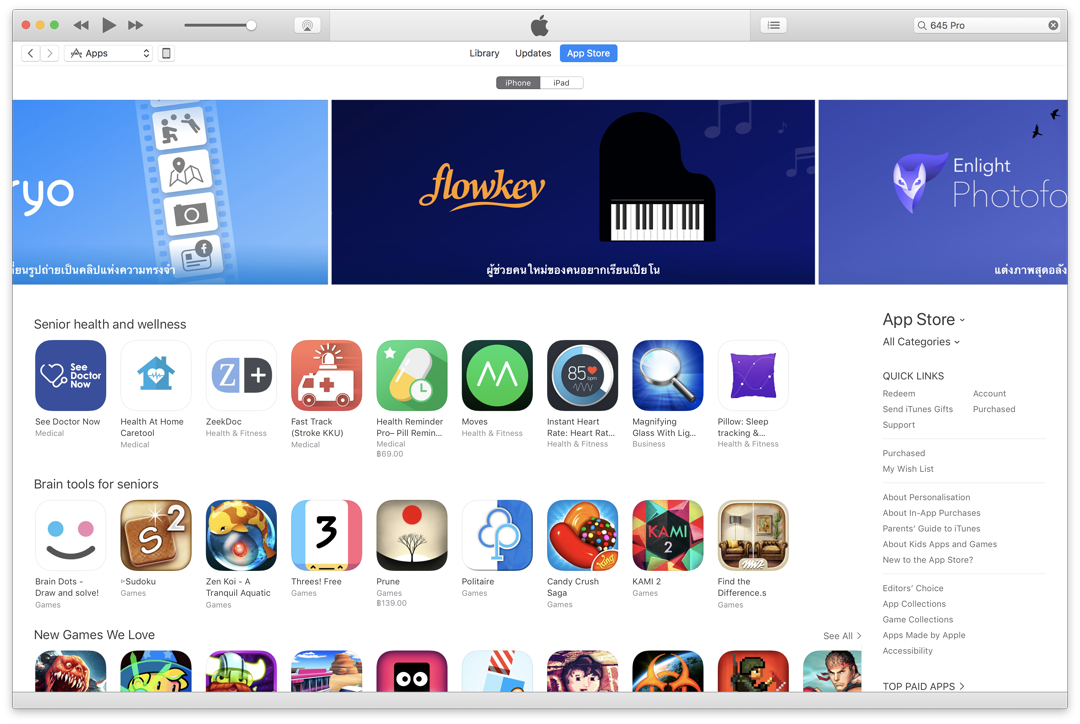Cassandra - Give me the Ocular Proof, and the Auricular Assistance

eXtensions - Thursday 13 July 2017
|
Cassandra - Give me the Ocular Proof, and the Auricular Assistance |
 |
|
|
By Graham K. Rogers
Falling SkiesThis week, in my Wednesday File, I wrote that, as this was the run-up to the Q3-2017 financial announcement from Apple, if all runs according to normal, the next couple of weeks will see all manner of dire announcements about how bad Apple is doing. While I was writing that, an item from Barrons was put out concerning the TouchID, suggesting that "panic" was setting in at Apple because of this. In typical Chicken Little fashion, the story spread like wild-fire.The iPhone 7 last year was released mid-September and we are now mid-July. It should also be remembered that, unlike some companies, Apple does not add new features in the last weeks before a product release and all decisions about what the next iPhone will have are already decided. As for the suggestion that the TouchID will not be available, as this is a core feature this would not be removed. If there are problems, solutions will be found. As part of the panic, Bank of America Merrill Lynch expect delays of 3 weeks and a drop in shipments by 11 million for the year (Evelyn Cheng, CNET). Foxconn is apparently untroubled by all the noise from Wall Street and expects good results (which should ease some pressure) and is about to invest in several sites in India. No contraction there.

Microsoft Misses and HitsAlthough Microsoft is often seen as the enemy by some Apple users, it must be remembered that without a cash injection from Redmond when Steve Jobs returned to the company, Apple would not have survived. It was in Microsoft's interests, but many want to forget that too. My main problem, apart from some of the copying, was with the fanaticism of Ballmer and his licensing control, something that Adobe has suffered from, I feel.Microsoft was well aware that its products were pirated and let it continue for quite a while with MSDOS. Pre-Windows, Word and Excel had been developed for the Mac. Up to MSDOS 5 it was easy to buy a copy of DOS in Phantip and many computers were sold with the OS and lots of software already installed. When DOS 5.0 was released there was a meeting at the old Hilton Hotel in Wireless Road and we were told that, Yes, we know you have all been pirating, but pay 500 baht for an upgrade and all will be forgiven. I bought the upgrade disks (still in my office) and the MSDOS 6.0 disks too. Then my PC broke and I bought a Mac. Recently, Microsoft under its new CEO has been doing some good work with iOS apps and has moved to a subscription model, although I am not wholly in agreement with this for ordinary users. I note that many of my students (for good or bad) are now doing all their work in Google apps, which is good for collaborations. This occasionally causes a problem when the internet is flaky at the university, but they are able to work effectively most of the time. A couple of years ago, I read some articles about work that Microsoft was doing in the UK on navigation systems for blind people. I was interested at that time in the use of the iBeacon and a group of my students was working on a project using wireless systems to assist blind people to navigate round BTS stations. The systems that Microsoft was developing then took these concepts a whole lot further (in terms of technology and geography) with a blind person travelling from London to Reading with assistance from the system. More information is available at
This week, Microsoft has made several announcements, including the release of an app in some markets (not Thailand) about the use of AI in conjunction with other technologies, all designed for navigation assistance. One of the releases is an iOS app that, typical for Microsoft, only has a limited release in US, Canada, India, Hong Kong, New Zealand and Singapore. This has been covered widely, including by Abhimanyu Ghosha on The Next Web. Some reports suggest that this will be rolled out in other countries eventually. Thanks for the delay, Satya.

Developer Responsibilities and User RespectThe advent of the iOS app produced a different approach from developers and users, particularly in terms of scale, distribution and cost. With desktop applications, the macOS user base is smaller and an application sometimes has several tasks. Apart from free apps, desktop apps are usually more expensive than those for iOS, although the move to subscription services has caused another shift in the last couple of years as larger companies try to claw back what they have lost by the switch to mobile devices.With a smaller user-base, a developer of a desktop application needs to price the application in a different way. While this may suggest higher prices, the applications also often have larger feature sets. Apps on iOS tend to be more limited, but with the huge user base, a developer has access to far more potential sales. The old lesson that 5% of 1 million is more than 10% of 100,000 is only now being understood by companies that have maintained high prices on the desktop, although many independent developers grasped this quite early. Apart from free apps, some of which may offer in-app purchases, a vast number of iOS apps are priced at $0.99. In Thailand this is 35 baht: the price of a plate of rice on the streets. However, for students and young people who may not have credit cards, buying here is not always easy (no gift certificates either). There are also some who never buy apps at all.

As the price of an app rises to $1.99 (69 baht) or $2.99, users expect more, even at these low prices compared to desktop apps. There are some iOS apps that have a specialist appeal and these are priced far higher. A recent example is Affinity Photo, that was demonstrated at Apple's WWDC. I had already been using the desktop version and readily bought the iOS version which only works on the iPad. In some ways it works better on the iPad (particularly the iPad Pro) than on the desktop. I did not regret the $19.99 (699 baht) price at all, even though I may balk at $2.99 for some apps. With Affinity Photo, I have an app that has the same features as the desktop version, but (I feel) an easier to use interface. The underlying engine was developed with such OS variations in mind and the interface has seen a considerable amount of work. I did see a version of this last August running on an iPad Pro, but it was not released until June of this year: when ready, I was told last year. Serif, who developed Affinity Photo for the Mac, then Windows and now iOS (it won't run on an iPhone) work hard on their products and I do not resent paying the unusually high price (for iOS apps) at all. It is full featured and works beautifully.
The pricing of an app needs to hit a sweet spot in terms of features and quality. The app must work properly and have no rough edges, such as badly formed instructions. And the developer must also be willing to reply to user queries in a reasonable time. Michael Hardaker who developed 645 Pro, for example, is a developer from South Africa who has responded in a matter of hours when I have posed a question. We may forgive some minor faults if the app is free, of course, or if a paid app has such a special appeal that a user chooses to ignore a minor problem. Although many users may think that the best things in life are free (The Beatles), the reality, particularly when it comes to continuing development of apps that continue the excellent work done so far, is that money makes the world go round (Cabaret). We must support developers as much as they support us.
Graham K. Rogers teaches at the Faculty of Engineering, Mahidol University in Thailand. He wrote in the Bangkok Post, Database supplement on IT subjects. For the last seven years of Database he wrote a column on Apple and Macs. After 3 years writing a column in the Life supplement, he is now no longer associated with the Bangkok Post. He can be followed on Twitter (@extensions_th) |
|

For further information, e-mail to
Back to
eXtensions
Back to
Home Page